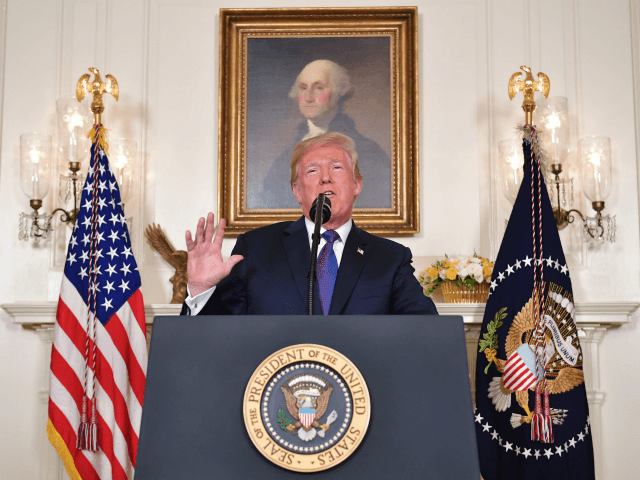President Donald Trump’s reported decision to withdraw U.S. forces from Syria could negatively impact the campaign to rid the country of Iranian influence while telegraphing a message of abandonment to our Kurdish allies as Russia solidifies control in Syria.
Numerous news media reports on Wednesday cited anonymous sources stating that Trump decided to remove the U.S. forces, although it was not immediately clear whether that meant all 2,000 U.S. troops stationed in Syria, most of whom have been advising and training local militias fighting the Islamic State.
“Full withdrawal, all means all,” one U.S. official told AFP when asked if U.S. forces would completely vacate the country.
The New York Times reported on a full withdrawal phased out over a period of several weeks, while the U.S air campaign against IS would continue.
White House spokesperson Sarah Huckabee Sanders did not provide specific numbers, but she seemed to confirm the troop pullout. “Five years ago, ISIS was a very powerful and dangerous force in the Middle East, and now the United States has defeated the territorial caliphate. These victories over ISIS in Syria do not signal the end of the Global Coalition or its campaign. We have started returning United States troops home as we transition to the next phase of this campaign,” she said.
“The United States and our allies stand ready to re-engage at all levels to defend American interests whenever necessary, and we will continue to work together to deny radical Islamist terrorists territory, funding, support, and any means of infiltrating our borders,” Huckabee added.
Trump himself tweeted: “We have defeated ISIS in Syria, my only reason for being there during the Trump Presidency.”
However, IS still controls small pockets of territory along the Syria-Iraq border.
While fighting IS was Trump’s stated goal, any withdrawal will have dramatic consequences for regional actors vying to fill the power vacuum following the years-long civil war in Syria.
Our Kurdish allies are sure to be most immediately impacted. U.S. troops on the ground have been working to aid the Syrian Democratic Forces (SDF), which consist almost entirely of Kurdish fighters.
Without U.S. protection on the ground, the Kurdish forces will doubtlessly become vulnerable to Turkish reprisals. Turkey considers the Kurdish militias terrorists and President Recep Tayyip Erdogan has vowed to launch a fresh offensive against them. The Kurds have been seeking to establish a formal presence along the Turkish border.
The U.S. move will provide Erdogan a boost at a time when Turkey has been leading all-out political warfare against Saudi Crown Prince Mohammed bin Salman over the death of Jamal Ahmad Khashoggi. Saudi Arabia is a key regional ally in the fight against radical Islamic terrorism and Iranian expansionism.
Trump’s purported decision sends the wrong message to other militias who might now be reluctant to work with us in the future, perhaps in Afghanistan or Iraq.
It remains to be seen whether the phased U.S. removal of ground forces signals a larger sea change in policy in that country, particularly with regard to future U.S. airstrikes against IS positions.
The withdrawal telegraphs a message of retreat at a time when Iran has suffered major losses in Syria. Iran has been humiliated and strategically devastated by Israel’s repeated strikes against Iran-run military bases in Syria, and has been feeling the pressure. The U.S. military presence is Syria has been viewed as important to pushing back against Iranian expansionism.
Iran, together with Russia, has been supporting the embattled regime of Bashar al-Assad. The U.S. withdrawal will surely be viewed in Tehran as providing much-needed breathing room for the Iranians to attempt to regain their influence in Syria. And the Russians will quietly celebrate the U.S. withdrawal since it leaves Moscow as the dominant military force in the country.
Aaron Klein is Breitbart’s Jerusalem bureau chief and senior investigative reporter. He is a New York Times bestselling author and hosts the popular weekend talk radio program, “Aaron Klein Investigative Radio.” Follow him on Twitter @AaronKleinShow. Follow him on Facebook.

COMMENTS
Please let us know if you're having issues with commenting.